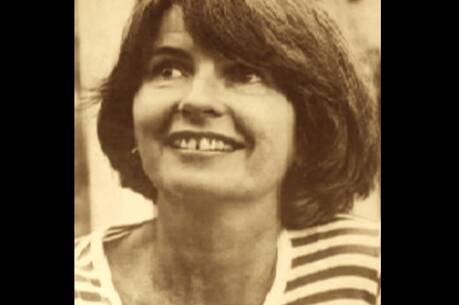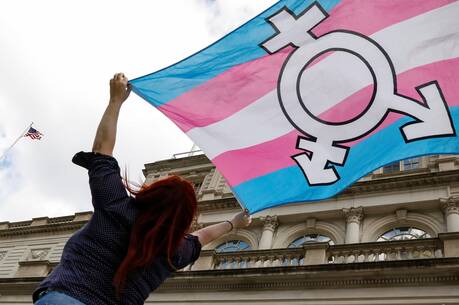 How could it happen?
How could it happen?
The terrible revelations of sexual abuse in Ireland and Germany have confirmed the reality that the abuse of children by clergy is not a phenomenon confined to the United States. Nor, as Kieran Conroy, the bishop of Arundel and Brighton in the U.K., stated recently, is the crisis a media creation. "It is real," he said. "It is a reality." Outrage among the Irish and German public is the predominant, natural and justified response. But buried beneath the shock and anger, especially for Catholics, however, is a searing question: How could this happen?
There is an important resource that may begin to answer this question: the detailed analysis of the roots of clerical abuse in this country, which was conducted by The National Review Board, the group of lay people who researched and reported to the U.S. Conference of Catholic Bishops in 2003. Some questioned the independence of the board, but I think that their situational analysis, carried out by committed and highly qualified lay Catholics, is accurate.
Looking at what the National Review Board viewed as the root causes of the crisis in this country may shed light on what happened in Ireland and Germany and elsewhere. On the whole, the board's analysis is about the most accurate and insightful that we have about the American situation. Of course, these are presented by the board as reasons, not excuses. There are no excuses for these crimes.
The board asked two main questions. First, Why did so many priests abuse minors in the U.S.? Second, how could the U.S. bishops have dealt with the issue so poorly, or not at all? Regarding the first question, as I far as I understand, roughly 4% of U.S. priests from 1950 to 2000 were accused of abuse. This is slightly higher than that in other professions, including those who deal with children, like schoolteachers. (Most abuse of course takes place within families). But any number is too high and leads to the question of how, especially in a religious organization committed to helping others and living out what Christians call Gospel values, this could happen.
The board answers how so many priests could have been abusive by looking at two causes. (Their responses are in boldface. My own comments follow their points.)








Yes, abuse occurs everywhere and it is terrible everywhere. But the Church teaches us to place our hope in the Church as the mediatrix of salvation. But now the Church has made itself the mediatrix of damnation - the very Whore of Babylon herself.
As long as the Church is concerned about scandal it cannot follow Christ and will continue to harbor evil. Jesus looked scandal in the eye and walked directly into it, even to death on the cross.
And this situation is not new. As I said in an earlier post, it was discussed in detail by the Lutherans in the 1520's and 1530's and was, along with adultery, the principle reason for the Protestant rejection of clerical celibacy.
Cause
I agree with the findings enumerated in the study as well as your commentary. I would add some additional thoughts. I believe the component of (unchecked) power is key, as well. I am the product ofparochial school, all boys Catholic HS and Catholic University . It is interesting to note that the reported prevalence of pedophilia among Catholic nuns is almost nil, compared to priests, despite the fact that (I believe) nuns far outnumber priests and certainly have/had greater access and opportunity to commit such acts with students than priests do/did. While nuns were always an authority figure, they had no power. All power was invested in priests. Think about this. Priests have the power to withhold absolution of your sins and condemn you to damnation, whether deserved or not. Talk about ultimate power. So I think the notion that one can do what one wills to do without recrimination is a major factor here.
Go-forward effect
The impact of all this is dire. More dire than the state of the Church finds itself in even up until now. I’m uncomfortable in “confessing” this to you but I will tell you that I have not gone to confession in decades, beginning with my preCana experience prior to marriage. I almost came to blows with the priest who was interrogating me and became hostile because I had the audacity to question his mandates to me on how I was to conduct myself as a husband. Fortunately, my wife and I were able to find another priest who was not unflinchingly authoritative and dictatorial and we were married without further incident. The fact is that there is nothing flawless in the universe, save God. The Church is a very imperfect institution run by very imperfect individuals. I came to the personal belief, right or wrong, that I was not going to confess my “sins” to a man who I did not know the veracity or moral purity of and I would leave it to God to know my heart. It infuriates me to know that all the $$$ I dumped into the collection basket throughout my life has gone, to some extent, to pay for lawyers or compensate victims in a nightmare that never should have happened. Despite whatever screening flaws existed in the Church previously, the priesthood demands the highest of moral standards and there should be zero tolerance all around. The continuing stonewalling, defiance and apologetics of the Vatican will not satisfy people’s anger at this. Therefore, I believe confidence, faith and allegiance to the Church will continue to erode.
I believe back then there were others who never experieced a traditional adolescence and entered the priesthood. This may or may not be a contributing factor to abuse but needs to be considered. I was around a lot of great priests growing up and I was oblivious to any sexual abuse. There were a couple of bad apples at prep school who physically abused students in excess. They would be arrested today but those were the times when you were hit by the priest you deserved it. I was hit a few times in the face by a man wearing a collar and its something you do not forget.
I am encouraged by Father Martin's explanation of today's screening process for the priesthood. Its going to a rough road the next few years for the Church with this issue and facing it head on will be best.
Tom Shaw
2) I know of no U.S. diocese which spemds more than 5% of its income on works of charity. Bishops were NOT protecting their money from litigation for the sake of the poor, sick and homeless.